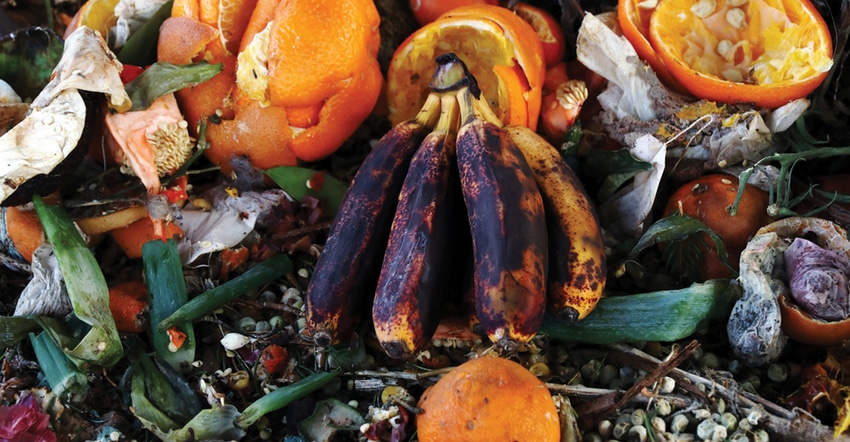October 14, 2021

WASHINGTON -- In the United States, 40 percent of all food produced is never eaten, resulting in lost resources, economic costs to businesses and households, decreased food security and negative climate impacts. As the U.S. moves toward an ambitious goal to significantly reduce food waste by 2030, American University is leading a $15 million, five-year project funded by the U.S. National Science Foundation that will engage communities in California, and the Great Lakes, Mid-Atlantic, and Southeast regions. The initiative represents the largest externally funded research grant in American University's history.
"This research exemplifies the impact that AU has on the world's most pressing problems," said President Sylvia M. Burwell. "Our expert scholars bring unique interdisciplinary approaches to critical challenges and create knowledge that translates into action. The NSF grant continues our leadership in sustainability and leads on the change we know can't wait."
Under the grant, researchers from American University and 13 other institutions have established the first national academic research network on wasted food. The network will deepen understanding of how the causes of wasted food are interconnected and how they intersect with other regional systems beyond food. Researchers will take a systems approach to improving data on wasted food, with the goal of designing and strengthening sustainable solutions to reducing food waste.
"To make sustainable, long-term decisions about local, regional and national food systems, we need better data," said Sauleh Siddiqui, associate professor of environmental science in AU's College of Arts and Sciences and principal investigator on the NSF grant. "Food encompasses health, culture, the environment, and the economy, and intersects with other systems, such as transportation, energy and water. We need to make connections between data from these different sources to improve our food systems and reduce wasted food."
Siddiqui will lead a team of co-principal investigators from across AU and with partners from Johns Hopkins University, Morgan State University, Ohio State University and the Rochester Institute of Technology. Additionally, researchers from Maryland Institute College of Art, World Wildlife Fund, University of Illinois-Urbana Champaign, University of Albany, Louisiana State University, Pennington Biomedical Research Center, Illinois Institute of Technology, Duke University and University of California-Davis are taking part.
The project scope includes work in the following areas and will engage communities, frontline workers in food industries, and non-profit, government and private-sector stakeholders to create knowledge and drive solutions.
Smarter data and predictive modeling. In the pursuit of efficiency and sustainability, Siddiqui said, inequitable decisions can occur, such as diverting low-quality foods to low-income neighborhoods. New math models can integrate data and take multiple factors into account and show the way to food systems solutions that balance sustainability, resilience and equity outcomes. Food rescue, a policy action, will be evaluated for amount of food rescued, environmental quality, population health and equity outcomes. Environmental racism and equity when matching rescued food to communities will be explored.
STEM K-12 and post-secondary education. A general education course and open educational resource, Wasted Food 101, and the first undergraduate student science journal on food systems will be created; there will be a curriculum for elementary school students; and partnerships with minority and disability serving institutions to engage Black, deaf, and hard of hearing students in research experiences.
Strategies to minimize household-level food waste. As consumer behavior plays a role in wasted food, research will be conducted on wasted food prevention campaigns in cities. Mapping trends and other digital tools will be used to assess wasted food and design educational and social marketing campaigns aimed at preventing waste and addressing the social determinants of health in communities.
Study new technologies on wasted food and their integration with regional infrastructure. Technologies like composting and anaerobic digestion are leading options for wasted food management, but their adoption is limited.
The project, Multiscale Resilient, Equitable and Circular Innovations with Partnership and Education Synergies for Sustainable Food Systems, or RECIPES, was awarded under NSF's Sustainable Regional Systems Research Networks program. NSF research networks create knowledge and solutions that enhance sustainability, equity and resilience of regional systems in the United States. To learn more, visit wastedfood.american.edu and follow @WastedFoodNtwk
About American University
American University leverages the power and purpose of scholarship, learning, and community to impact our changing world. From sustainability to social justice to the sciences, AU's faculty, students, staff, and alumni are changemakers. Building on our 128-year history of education and research in the public interest, we say 'Challenge Accepted' to addressing the world's pressing issues. Our Change Can't Wait comprehensive campaign creates transformative educational opportunities, advances research with impact, and builds stronger communities.
SOURCE American University

You May Also Like


